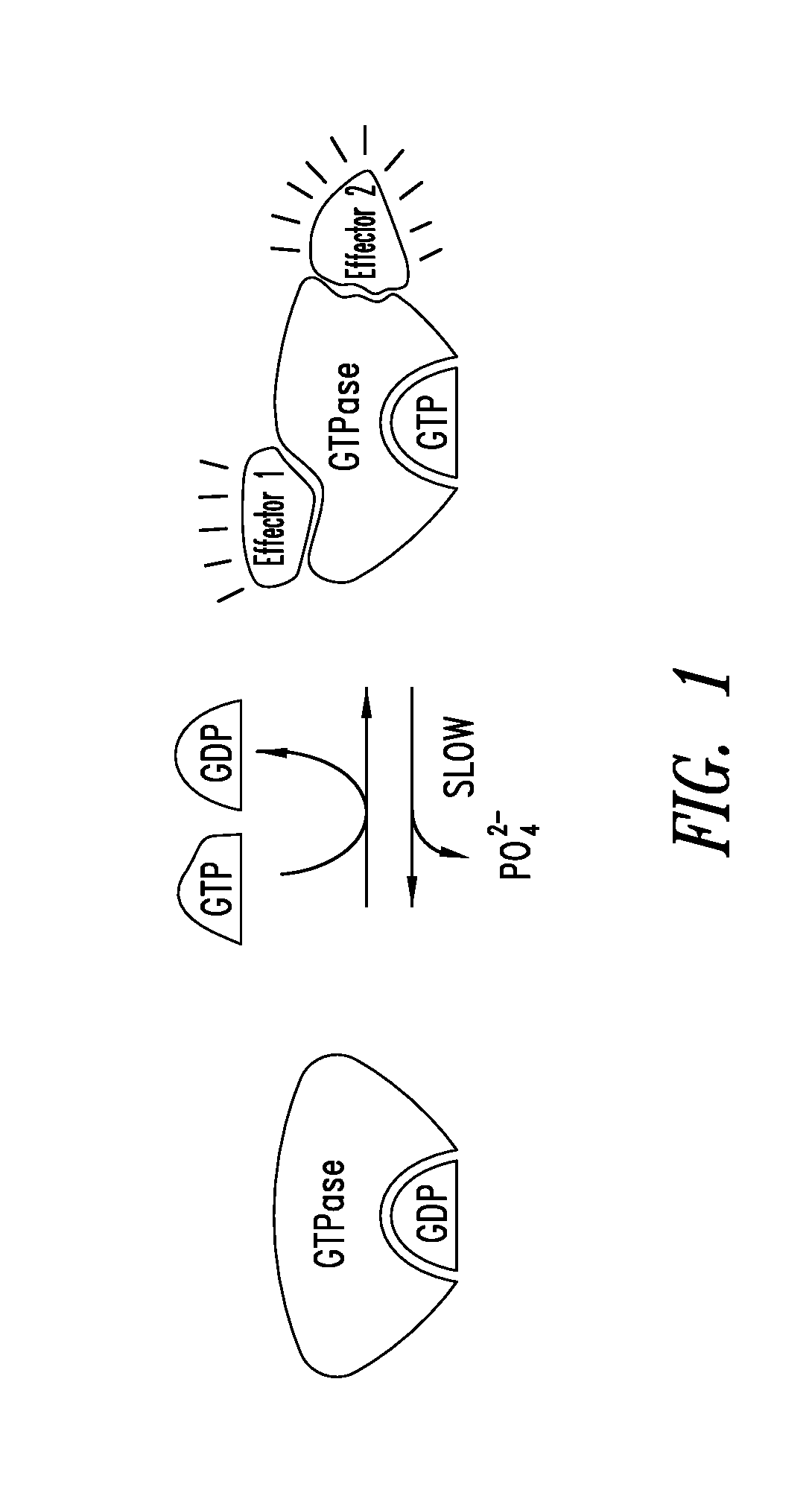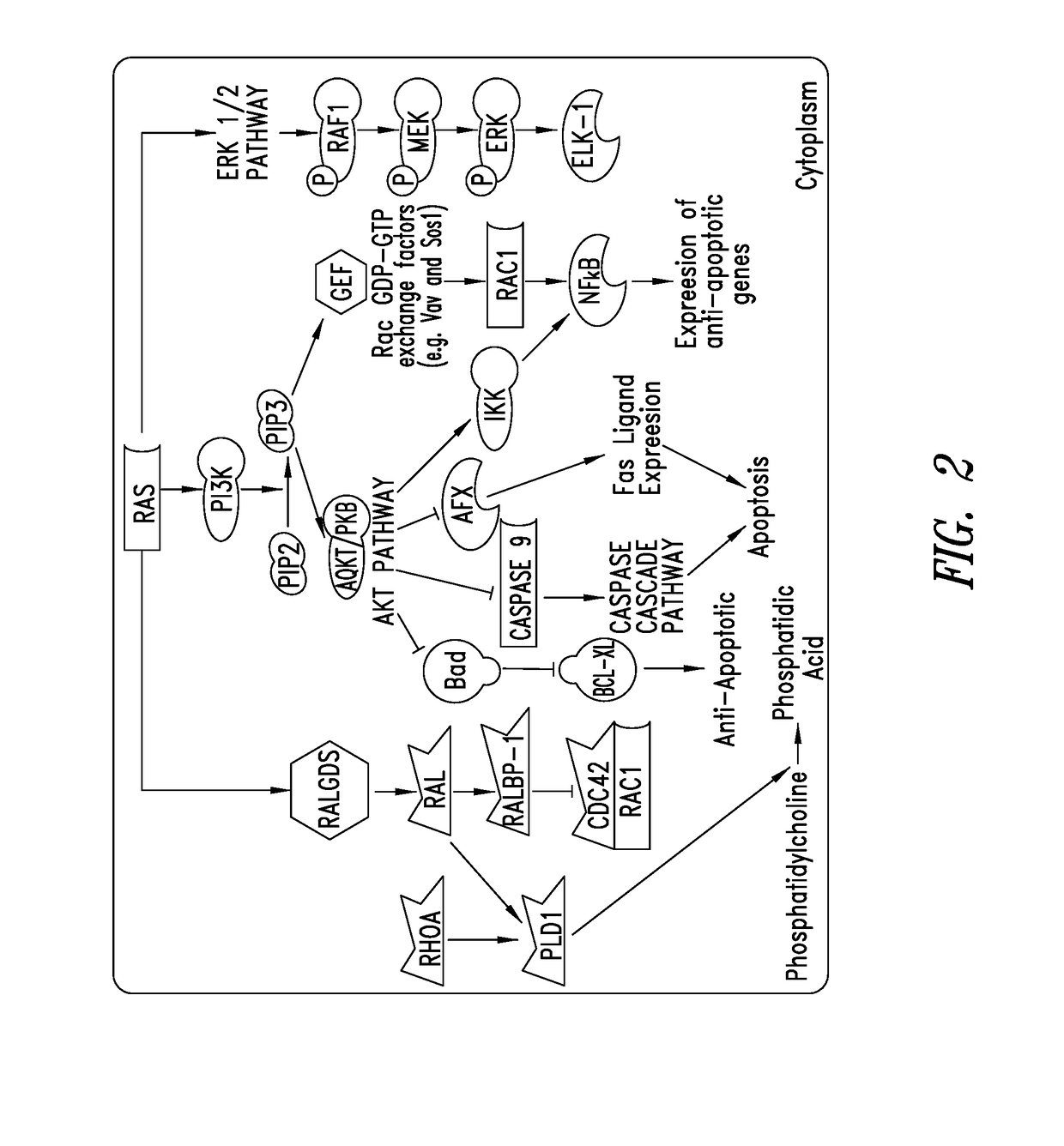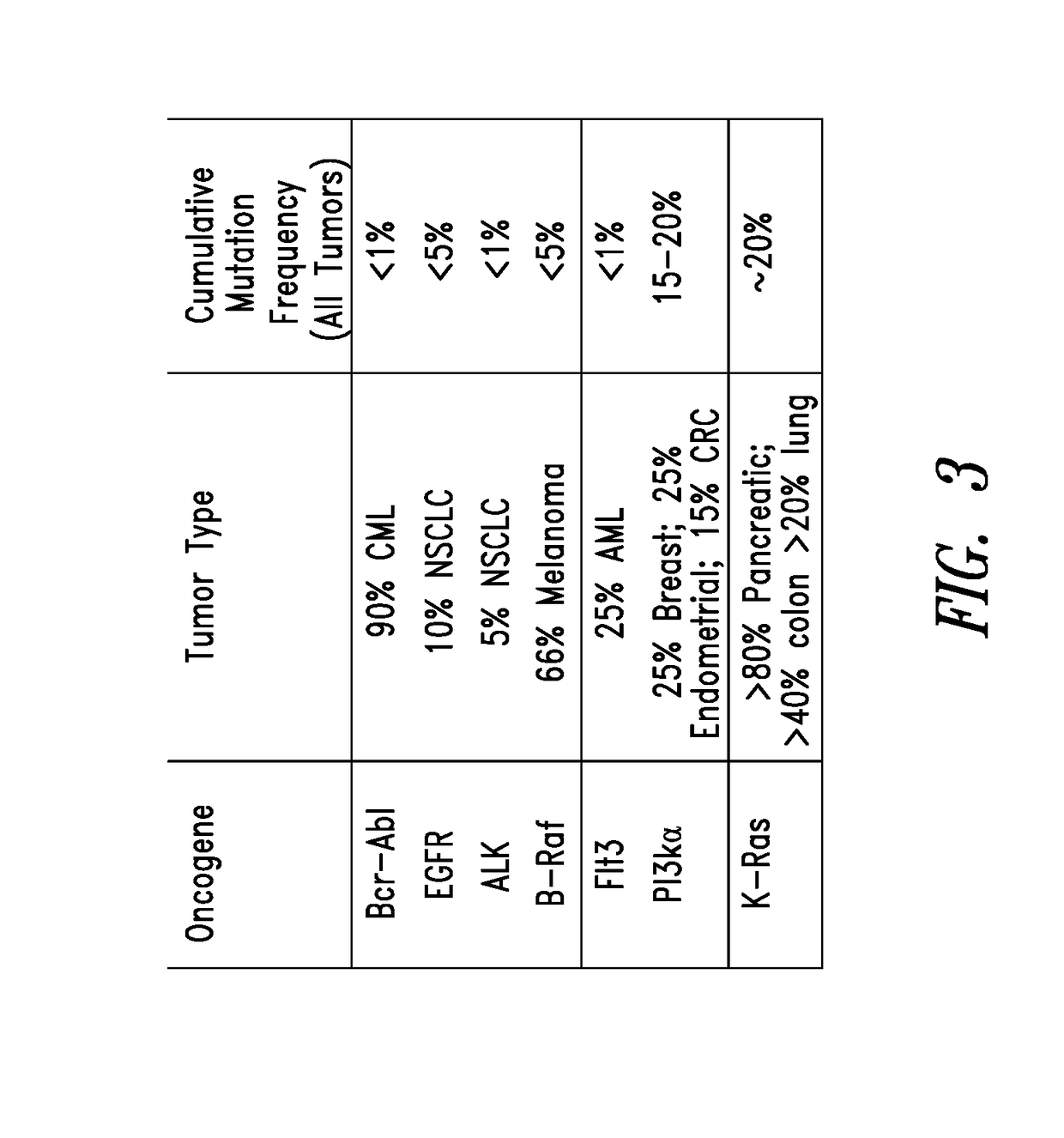Inhibitors of kras g12c mutant proteins
a technology of kras g12c and mutant proteins, which is applied in the field of inhibitors of kras g12c mutant proteins, can solve the problem of challenging the target of this gene with small molecules
- Summary
- Abstract
- Description
- Claims
- Application Information
AI Technical Summary
Benefits of technology
Problems solved by technology
Method used
Image
Examples
example 1
Synthesis of 1-(4-(2′-chloro-5′-hydroxybiphenyl-4-yl)piperazin-1-yl)prop-2-en-1-one (1)
[0296]
6-Chloro-4′-(piperazin-1-yl)-[1,1′-biphenyl]-3-ol
[0297]A mixture of 3-bromo-4-chlorophenol (50 mg, 0.24 mmol), 1-(4-(4,4,5,5-tetramethyl-1,3,2-dioxaborolan-2-yl)phenyl)piperazine (70 mg, 0.24 mmol), and Pd(dppf)Cl2.CH2Cl2 (20 mg, 0.024 mmol) in co-solvent of dioxane / saturated NaHCO3 (3 mL, 2:1) was stirred at 120° C. in microwave reactor for 5 minutes. The mixture was diluted with DCM and washed with water. The organic layer was dried over Na2SO4, filtered, and concentrated in vacuo to afford the desired product.
1-(4-(2′-Chloro-5′-hydroxy-[1,1′-biphenyl]-4-yl)piperazin-1-yl)prop-2-en-1-one
[0298]To a stirred solution of 6-chloro-4′-(piperazin-1-yl)-[1,1′-biphenyl]-3-ol dissolved in DCM (10 mL) triethylamine was added, followed by the addition of acryloyl chloride (22 mg, 0.24 mmol) at 0° C. The mixture was stirred for 30 minutes, diluted with DCM, and washed with saturated NaHCO3. The organic...
example 2
Synthesis of 1-(4-(4-(2-chloro-5-hydroxyphenyl)-1H-indazol-7-yl)piperazin-1-yl)prop-2-en-1-one (24)
[0299]
1-Bromo-4-fluoro-2-methyl-3-nitrobenzene
[0300]A mixture of 1-fluoro-3-methyl-2-nitrobenzene (18 g, 116 mmol) and TFA (75 mL) was cooled to 0° C. and 98% H2SO4 aqueous solution (75 mL) was added, followed by NBS (31 g, 174 mmol) in small portions within 1 h. The mixture was stirred at 0° C. for 20 min, and at room temperature for 3 h. The mixture was poured in to a mixture of water (300 g) and ice (300 g), and the pH was adjusted to 7-8 using NaHCO3. The solid was filtered and washed with hexanes / ethyl acetate (9:1, 300 mL). The organic phase was separated and the aqueous phase was extracted with hexanes / ethyl acetate (9:1, 400 mL). The combined organic layer was washed with Na2S2O3 aqueous solution (2×200 mL) and brine (200 mL), dried over Na2SO4, filtered, and concentrated in vacuo. The remaining solid was dissolved in 400 mL of hexanes and dark oil at the bottom of flask was di...
example 3
Synthesis of 1-(4-((2′-chloro-5′-hydroxy-[1,1′-biphenyl]-4-yl)methyl)piperazin-1-yl)prop-2-en-1-one (17)
[0306]
tert-Butyl 4-(4-bromobenzyl)piperazine-1-carboxylate
[0307]A mixture of 1-bromo-4-(bromomethyl)benzene (250 mg, 1 mmol), tert-butyl piperazine-1-carboxylate (186.3 mg, 1 mmol) and diisopropyl ethyl amine (156 mg, 1.2 mmol) in DCM was stirred at RT overnight. The mixture was diluted with DCM and washed with water. The organic layer was dried over Na2SO4, filtered, and concentrated in vacuo. The residue was purified via Isolera One (ethyl acetate / hexane=0-50%) to afford the desired compound.
1-(4-(4-Bromobenzyl)piperazin-1-yl)prop-2-en-1-one
[0308]A solution of tert-butyl 4-(4-bromobenzyl)piperazine-1-carboxylate in 50% TAF in DCM (5 mL) was stirred at RT for 1 h. The solution was concentrated in vacuo and the residue was re-dissolved in DCM, and washed with saturated NaHCO3. The organic layer was dried over Na2SO4, filtered, and concentrated in vacuo. The residue was re-dissolve...
PUM
 Login to View More
Login to View More Abstract
Description
Claims
Application Information
 Login to View More
Login to View More - R&D
- Intellectual Property
- Life Sciences
- Materials
- Tech Scout
- Unparalleled Data Quality
- Higher Quality Content
- 60% Fewer Hallucinations
Browse by: Latest US Patents, China's latest patents, Technical Efficacy Thesaurus, Application Domain, Technology Topic, Popular Technical Reports.
© 2025 PatSnap. All rights reserved.Legal|Privacy policy|Modern Slavery Act Transparency Statement|Sitemap|About US| Contact US: help@patsnap.com



